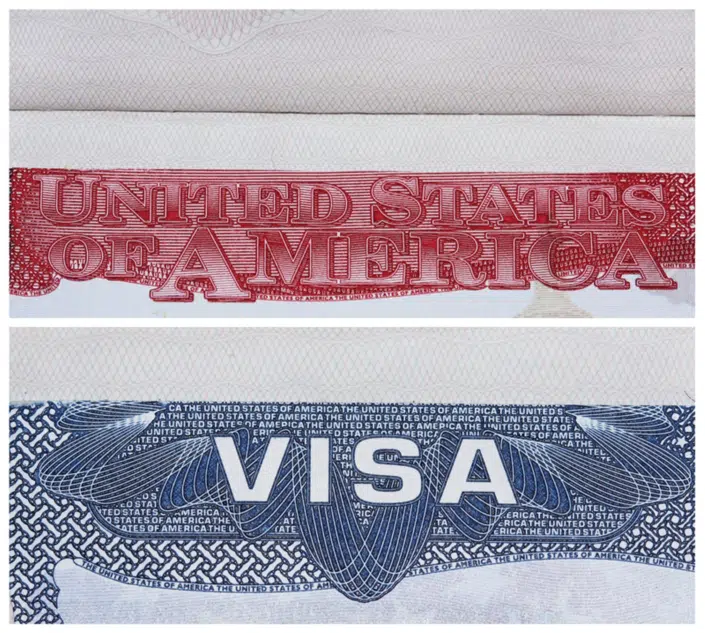Understanding the E-2 Visa: A Path to Investment and Economic Growth in the U.S.
E-2 visa investors are a unique group of individuals or firms hailing from countries that share trade treaties with the United States. Their objective is to bring innovation and economic growth to the U.S. by overseeing a new or existing enterprise where they have made a significant capital investment. E-2 visa status is also available for individuals employed by a treaty investor or firm who hold an executive position, or those with specialized skills crucial to the functioning of the enterprise. The key criterion is that the investor or employer must hold the nationality of the treaty country, which can be verified by a passport from that nation.
Investment Requirements for the E-2 Visa
The E-2 visa investor must ensure that their funds or assets are directly associated with them. Documentation that traces the origin of these funds is a mandatory requirement. It’s worth noting that an investment implies exposure to risk. The E-2 visa investment is not passive, meaning investment solely in property or real estate, if they do not require active management and merely appreciate over time, do not qualify as an E-2 treaty investment. Furthermore, the investor needs to demonstrate that they have alternative revenue sources to support themselves and their family while the investment matures.
Examples of suitable businesses for E-2 investments might include:
- retail businesses
- distribution companies
- restaurants
- franchises
- manufacturing companies
These types of businesses require active management and oversight, aligning with the E-2 visa’s requirement for an active investment where the investor is actively engaged in the operation of the enterprise.
Applying for the E-2 Investor Visa
Once the E-2 visa application and supporting documents are suitably prepared, they are submitted to the relevant U.S. Consular Section. Upon approval, the visa is issued and placed in the applicant’s passport, and if applicable, the passports of any family members. An E-2 investor’s visa can potentially remain valid indefinitely, provided the investment is upheld and the business remains non-marginal. In some cases, E-2 visa investments can be tailored so that an investor and their family can apply for an EB-5 investment visa.
Family Members are eligible for the E-2 Visa
E-2 visa holders are entitled to bring their immediate family members along with them to the United States. The term ‘family members’ specifically refers to the spouse of the visa holder and any unmarried children who are under the age of 21. It’s important to note that these family members do not need to hold the same treaty country citizenship as the main E-2 visa holder. However, their eligibility to stay in the U.S. under the treaty status is conditional. Once a child turns 21 or gets married, they lose their eligibility to remain in the U.S. under the E-2 treaty status. It should also be mentioned that each family member’s stay in the U.S. is contingent upon their own separate visa application, which must be filed in conjunction with the primary E-2 applicant’s application.
Documentation Required for the E-2 Visa
Obtaining an E-2 investment involves a variety of documentation, such as a well-structured business plan, proof of lawful funds source, evidence of active investment, and more. Our law firm is more than ready to help you navigate through this process, offering assistance in organizing and preparing your documentation.
Leveraging the Expertise of an Immigration Expert for Your E-2 Visa Application
Securing an E-2 Investor Visa can be a complex endeavor that requires a well-thought-out strategy, meticulous preparation, and a comprehensive understanding of immigration laws and policies. An experienced immigration attorney can guide you through this intricate process, providing advice on key considerations such as the source and amount of investment, the type of business enterprise, and the investor’s role in the business.
From the initial stage of validating the lawful source of funds to demonstrating a substantial investment in a bona fide enterprise, your attorney can assist in preparing the necessary documentation and making a persuasive case to the U.S. Consulate. They can also provide strategic advice on maintaining your E-2 status, such as ensuring the business remains active and is not merely generating minimal income.
If your long-term goal is to secure permanent residency in the U.S., an immigration attorney can also advise on the possibility of transitioning from an E-2 Visa to an EB-5 Investor Visa. This transition requires careful planning, as it involves additional commitments such as investing the required minimum amount and creating at least 10 new full-time jobs.
Navigating the E-2 Visa application process with the help of a knowledgeable immigration attorney not only increases the likelihood of a successful application but also provides peace of mind knowing that your investment and immigration goals are being handled by an expert.
If you require further information, please do not hesitate to get in touch with our board-certified immigration law specialist.
Countries Eligible for the E-2 Visa
Country Specific Footnotes
- China (Taiwan) – Pursuant to Section 6 of the Taiwan Relations Act, (TRA) Public Law 96-8, 93 Stat, 14, and Executive Order 12143, 44 F.R. 37191, this agreement which was concluded with the Taiwan authorities prior to January 01, 1979, is administered on a nongovernmental basis by the American Institute in Taiwan, a nonprofit District of Columbia corporation, and constitutes neither recognition of the Taiwan authorities nor the continuation of any official relationship with Taiwan.
- Czech Repubilc and Slovak Republic – The Treaty with the Czech and Slovak Federal Republic entered into force on December 19, 1992; entered into force for the Czech Republic and Slovak Republic as separate states on January 01, 1993.
- Denmark – The Treaty which entered into force on July 30, 1961, does not apply to Greenland.
- France – The Treaty which entered into force on December 21, 1960, applies to the departments of Martinique, Guadeloupe, French Guiana and Reunion.
- Japan – The Treaty which entered into force on October 30, 1953, was made applicable to the Bonin Islands on June 26, 1968, and to the Ryukyu Islands on May 15, 1972.
- Netherlands – The Treaty which entered into force on December 05, 1957, is applicable to Aruba and Netherlands Antilles.
- Norway – The Treaty which entered into force on September 13, 1932, does not apply to Svalbard (Spitzbergen and certain lesser islands).
- Spain – The Treaty which entered into force on April 14, 1903, is applicable to all territories.
- Suriname – The Treaty with the Netherlands which entered into force December 05, 1957, was made applicable to Suriname on February 10, 1963.
- United Kingdom – The Convention which entered into force on July 03, 1815, applies only to British territory in Europe (the British Isles (except the Republic of Ireland), the Channel Islands and Gibraltar) and to “inhabitants” of such territory. This term, as used in the Convention, means “one who resides actually and permanently in a given place, and has his domicile there.” Also, in order to qualify for treaty trader or treaty investor status under this treaty, the alien must be a national of the United Kingdom. Individuals having the nationality of members of the Commonwealth other than the United Kingdom do not qualify for treaty trader or treaty investor status under this treaty.
- Yugoslavia – The U.S. view is that the Socialist Federal Republic of Yugoslavia (SFRY) has dissolved and that the successors that formerly made up the SFRY – Bosnia and Herzegovina, Croatia, the Republic of Macedonia, Slovenia, Montenegro, Serbia, and Kosovo a continue to be bound by the treaty in force with the SFRY and the time of dissolution.
- The E-3 visa is for nationals of the Commonwealth of Australia who wish to enter the United States to perform services in a “specialty occupation.” The term “specialty occupation” means an occupation that requires theoretical and practical application of a body of highly specialized knowledge, and attainment of a bachelor’s or higher degree in the specific specialty (or its equivalent) as a minimum for entry into the occupation in the United States. The definition is the same as the Immigration and Nationality Act definition of an H-1B specialty occupation.
- Bolivia – Bolivian nationals with qualifying investments in place in the United States by June 10, 2012 continue to be entitled to E-2 classification until June 10, 2022. The only nationals of Bolivia (other than those qualifying for derivative status based on a familial relationship to an E-2 principal alien) who may qualify for E-2 visas at this time are those applicants who are coming to the United States to engage in E-2 activity in furtherance of covered investments established or acquired prior to June 10, 2012.
- Ecuadorian nationals with qualifying investments in place in the United States by May 18, 2018 continue to be entitled to E-2 classification until May 18, 2028. The only nationals of Ecuador (other than those qualifying for derivative status based on a familial relationship to an E-2 principal alien) who may qualify for E-2 visas at this time are those applicants who are coming to the United States to engage in E-2 activity in furtherance of covered investments established or acquired prior to May 18, 2018.
- Israel: Pursuant to a treaty of friendship, commerce, and navigation between the United States and Israel that entered into force on April 3, 1954 entitled nationals of Israel to E-1 status for treaty trader purposes. Nationals of Israel are not entitled to E-2 classification for treaty investor purposes under that treaty. Public Law 112-130 (June 8, 2012), accords nationals of Israel E-2 status for treaty investor purposes if the Government of Israel provides similar nonimmigrant status to nationals of the United States. The Department has confirmed that Israel offers reciprocal treaty investor treatment to U.S. nationals and E-2 visa may be issued to nationals of Israel beginning on May 1, 2019.
- New Zealand: Public Law 115-226, enacted on August 1, 2018, accorded nationals of New Zealand to E-1 and E-2 status for treaty trader/treaty investor purposes if the Government of New Zealand provides similar nonimmigrant status to nationals of the United States. The Department has confirmed that New Zealand offers similar nonimmigrant status to U.S. nationals and E visas may be issued to nationals of New Zealand beginning on June 10, 2019.










